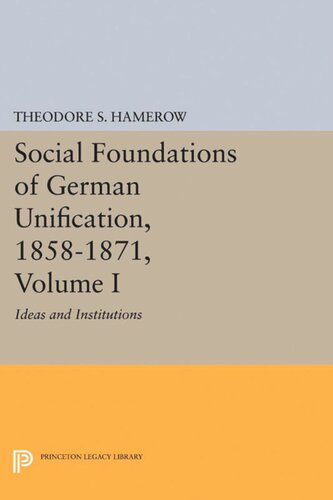

Most ebook files are in PDF format, so you can easily read them using various software such as Foxit Reader or directly on the Google Chrome browser.
Some ebook files are released by publishers in other formats such as .awz, .mobi, .epub, .fb2, etc. You may need to install specific software to read these formats on mobile/PC, such as Calibre.
Please read the tutorial at this link: https://ebookbell.com/faq
We offer FREE conversion to the popular formats you request; however, this may take some time. Therefore, right after payment, please email us, and we will try to provide the service as quickly as possible.
For some exceptional file formats or broken links (if any), please refrain from opening any disputes. Instead, email us first, and we will try to assist within a maximum of 6 hours.
EbookBell Team

4.1
60 reviewsThe diplomatic and political events leading to the establishment of the German Empire have been studied extensively, but the social matrix of civic activity has been sadly neglected. Professor Hamerow fills this gap by dealing first with the development of the economy and the community under the influence of industrialization. He then considers the ideologies of the era and the groups supporting them: liberalism and the middle class; conservatism and the outlook of the old order; socialism and the emerging industrial working class. The final section of his book is on the structure of politics: the system of parties, the nature of civic organizations, and public opinion.
Originally published in 1969.
The Princeton Legacy Library uses the latest print-on-demand technology to again make available previously out-of-print books from the distinguished backlist of Princeton University Press. These editions preserve the original texts of these important books while presenting them in durable paperback and hardcover editions. The goal of the Princeton Legacy Library is to vastly increase access to the rich scholarly heritage found in the thousands of books published by Princeton University Press since its founding in 1905.